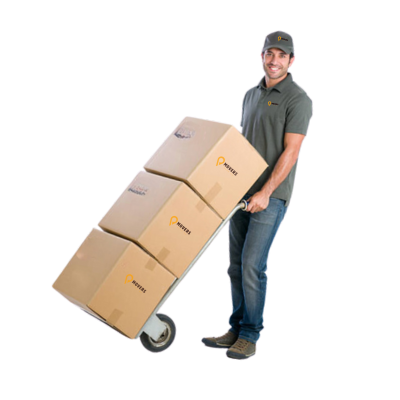FULL SERVICE MOVERS NEAR ME
What is a Full-Service Mover?
A full-service mover provides an all-inclusive moving experience, covering every step of the relocation process. Services typically include:
- Packing and Unpacking: The movers will pack your belongings using professional materials, ensuring that fragile and valuable items are protected. They’ll also unpack everything at your new location.
- Furniture Disassembly and Reassembly: Large furniture items will be disassembled, safely transported, and then reassembled at your new home or office.
- Loading and Unloading: The movers will load your belongings onto the truck and unload them at the destination.
- Transportation: Full-service movers handle the logistics of transporting your items to the new location, whether it’s across town or across the country.
- Storage Services: If needed, many full-service movers offer short-term or long-term storage solutions.
- Specialty Item Handling: They can handle the moving of specialty items such as pianos, artwork, antiques, and electronics.
- Debris Removal: After unpacking, the movers will remove all packing materials and debris, leaving your new space clean and ready to use.
SPECIAL CONSIDERATIONS FOR FULL SERVICE MOVES
Types of Moves Handled by Full-Service Movers
- Residential Moves: Moving homes, whether it’s a small apartment or a large house.
- Commercial Moves: Relocating businesses, including offices, retail spaces, and warehouses.
- Long-Distance Moves: Moves that cross state lines or involve significant travel distances.
- International Moves: Coordinating moves to another country, including customs handling and international shipping.
- Military Moves: Specialized services for military families, often with a focus on quick turnarounds and specific regulations.
- Corporate Relocations: Handling employee relocations as part of a corporate benefits package.
3. Choosing the Right Full-Service Mover
- Experience and Reputation: Look for a moving company with a solid track record of handling full-service moves. Read online reviews, ask for references, and check their standing with organizations like the Better Business Bureau (BBB).
- Licensing and Accreditation: Ensure the mover is licensed and registered with the relevant authorities, such as the Federal Motor Carrier Safety Administration (FMCSA) for interstate moves. Accreditation with industry associations like the American Moving & Storage Association (AMSA) is also a good sign.
- Transparent Pricing: Full-service moves can be costly, so make sure to get a detailed estimate that covers all services. Be wary of hidden fees or vague pricing structures.
- Customization: Choose a mover that offers customizable services to fit your specific needs. For example, if you have valuable antiques or delicate items, the mover should offer specialized packing and transport options.
4. Planning the Move
- Initial Consultation: Full-service movers typically start with an in-home or in-office consultation to assess the scope of the move, discuss your specific needs, and provide an accurate estimate.
- Inventory Management: The movers will create a detailed inventory of all items to be moved, helping to ensure nothing is lost or damaged during the process.
- Timeline Coordination: Full-service movers will work with you to develop a moving timeline that fits your schedule, including packing days, moving day, and unpacking.

Transportation and Logistics
- Route Planning: The moving company will plan the best route to transport your belongings, considering factors like distance, weather, and road conditions.
- Tracking: Many full-service movers offer tracking services so you can monitor the progress of your move in real-time.
- Timing: For long-distance or international moves, timing is crucial. Full-service movers will coordinate to ensure your belongings arrive on schedule.
Unpacking and Setup
- Room Setup: The movers will unpack your belongings and place them in the designated rooms according to your instructions. They’ll also reassemble furniture and set up larger items like appliances.
- Final Inspection: After unpacking, conduct a final inspection to ensure everything is in place and nothing is damaged. Address any issues with the moving company immediately.
Post-Move Services
- Debris Removal: After unpacking, the movers will take care of all packing materials and debris, leaving your new home or office clean.
- Storage Solutions: If you require storage after the move, full-service movers often offer ongoing storage options, including delivery to your location when you’re ready to retrieve your items.
- Follow-Up: Some full-service movers offer follow-up services, checking in after the move to ensure everything went smoothly and addressing any remaining concerns.
Avoiding Scams
- Due Diligence: Research the moving company thoroughly. Avoid movers with vague estimates, lack of proper credentials, or those that ask for large deposits upfront.
- Detailed Contracts: Ensure everything is in writing, including services, costs, and timelines. Don’t sign a blank or incomplete contract.

